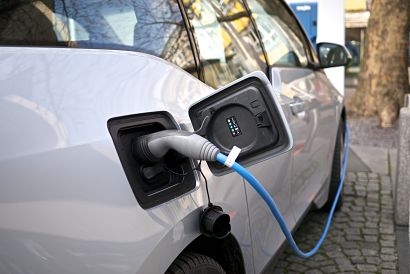
The UK government is set to end new petrol and diesel sales by 2030 and so the switch to electric vehicles (EVs) is getting closer. A new survey by Rivervale Leasing asked 1,000 Brits how they really feel about electric cars and found that UK drivers won’t switch because they think EVs are expensive, limited on charge points and have a poor range. The data also reveals that many drivers don’t think EVs have changed over the past 5 years.
According to the survey:
2 in 5 Brits say that petrol and diesel cars are cheaper to run than EVs
64 percent think that the country has fewer than 20,000 UK charging points – but in reality there are actually 34,000
Only 3 percent know how long an EV battery lasts for – 85 percent of Brits think it’s a lot less than it is
2 in 5 believe the range of electric cars hasn’t improved over the last 5 years
Regional data shows that Leeds, Manchester and Bristol have the most negative view of EVs
UK drivers won’t switch to EVs because of their beliefs around cost, charging access and poor range. However, these supposed disadvantages aren’t necessarily true. Rivervale Leasing’s findings suggest that EVs are misunderstood, or that drivers aren’t up to date with how they’ve changed over the past few years.
Most drivers (37 percent) think an EV is too expensive to buy. Although that’s true with regard to the upfront capital cost – most electric cars are pricier than combustion engine vehicles when paying upfront statistics show that 90 percent of new cars are financed, so the expensive initial cost only affects 1 in 10 drivers who purchase their vehicle outright.
Furthermore, electric cars have been shown to be cheaper to run, as the monthly costs are less than the equivalent petrol version, which could save drivers an average of £107 a year.
2 in 5 say that petrol and diesel cars are cheaper to run than EVs – but the reality is that EVs are a lot cheaper to run. According to EDF Energy, it would cost £10 per 100 miles to fill up a petrol car. However, it would only be £4 per 100 miles for an electric alternative, making it a much cheaper option.
64 percent of Brits think the country has fewer than 20,000 UK charging points – but there are actually 34,000.
1 in 5 (18 percent) say they wouldn’t drive an EV because there are limited charge points. It turns out that a total of 64 percent believe there are fewer than 20,000 UK charge points, when there are actually 34,000.
That’s the equivalent of drivers thinking that there is 1 charge point for every 8 electric cars. In truth, there is actually 1 charge point for every 5 electric cars, so drivers are much less likely to share.
What’s more, 1 in 3 (29 percent) drivers’ perceptions are wrong, believing we have only 10,000 charge points – that’s how many we had back in 2015. If that was true, it would equal just 1 charge point for every 16 cars. In fact, the UK has more than tripled this number of charge points in the past 5 years.
Just 7 percent of drivers know how many charge points we have in the UK, suggesting that limited charging access isn’t a problem and is actually a misconception.
Poor range is the third top reason why Brits won’t drive an EV (15 percent), but range anxiety isn’t as serious as many people might think. The average car journey in the UK is 8.4 miles long, which is covered by even the smallest EVs. Plus, there are over 30,000 charge points if you ever need to top up.
Today, the average range of a battery electric vehicle (BEV) is around 200 miles. The survey shows that 2 in 5 drivers (37 percent) believe that the average BEV can only go between 50-149 miles on a single charge. That would be true – if it related to the average BEV range from 5 years ago.
Perceived poor battery longevity is another reason why 1 in 10 UK drivers (9 percent) won’t drive an EV, but this seems to be another misconception. The survey results show that a huge 85 percent in total think that an electric car battery needs to be replaced between 3 and 10 years. In truth, it’s closer to every 14 years, which only 3 percent of drivers are aware of.
The average UK motorist drives 7,400 miles a year and an electric car battery generally lasts for 100,000 miles, so it would take around 14 years before needing a replacement. Plus, many vehicles are only on the roads for 8 years, so drivers might never need to replace an EV battery.
1 in 10 Brits feel limited by EV manufacturers – but there are 40 EV brands to choose from.
Another 1 in 10 drivers (9 percent) believe that there is a limited choice of EV manufacturers available. However, 40 manufacturers are currently producing electric cars, including well-known brands like Tesla, Audi, Mercedes-Benz, Ford and Volkswagen.
Regional data shows Leeds, Manchester and Bristol have the most negative EV view
Rivervale investigated the sentiment of 1,237 Tweets recorded from January to October 2020 to find out what the UK really thinks about electric cars. The resulting Twitter data shows that most of the UK (45 percent) does have a positive attitude towards EVs, but 1 in 4 (24 percent) disapprove.
Looking at the top 15 cities, Liverpool is the biggest EV fan, with 68 percent feeling optimistic about electric cars. However, there are cities which have a more negative outlook. 1 in 3 drivers in many locations aren’t as enthusiastic about electric cars, with Leeds (35 percent) coming out as the most negative city, followed by Manchester (34 percent) and Bristol (33 percent).
For additional information:

